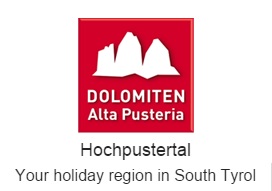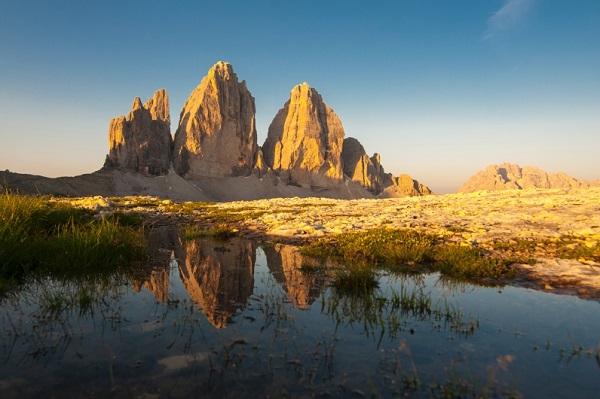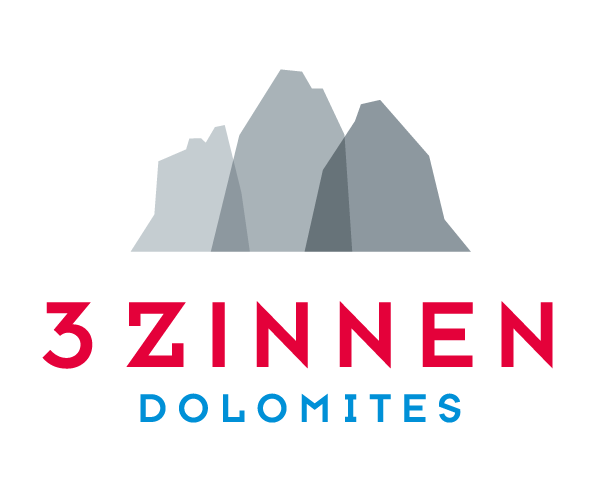 Life in harmony with nature: Set against the majestic backdrop of the Dolomites in South Tyrol, the Alta Pusteria/Hochpustertal region takes sustainability and ecological awareness beyond being just a catchy idea. The communities of Sexten, Innichen, Toblach, Niederdorf and Prags actively support a series of projects from different areas and incorporate green concepts in everyday life and tourism. Activities range from renewable energy supplies for as many households as possible, a powerful public transport network and environmentally focused hotels, to the annual Toblach Talks, a discussion forum on sustainability which touches even sensitive issues and has developed quite a number of efficient resolutions.
Life in harmony with nature: Set against the majestic backdrop of the Dolomites in South Tyrol, the Alta Pusteria/Hochpustertal region takes sustainability and ecological awareness beyond being just a catchy idea. The communities of Sexten, Innichen, Toblach, Niederdorf and Prags actively support a series of projects from different areas and incorporate green concepts in everyday life and tourism. Activities range from renewable energy supplies for as many households as possible, a powerful public transport network and environmentally focused hotels, to the annual Toblach Talks, a discussion forum on sustainability which touches even sensitive issues and has developed quite a number of efficient resolutions.

Green energy: Full speed ahead! The Toblach district heating power station, which uses wood chips, bark and saw dust to produce energy and heat, was designed to keep carbon dioxide emissions below the level of previously bound CO2. More than 1,000 households in Toblach and Innichen are supplied with renewable energies from this source. Compared to the cost of fuel oil this creates annual savings of four million euro. A special trail presents the way biomass is used to produce power. It is part of the district heating power station and the only trail of its kind in Europe.
The Alta Pusteria mountain gondolas, too, rely on green energy: The Sextener Dolomiten AG uses power that originates solely from South Tyrolean hydropower sources, thus reducing CO2 emissions by 3,680.5 tons annually.
Green think-tank: The Toblach Talks Founded in 1985 by Hans Glauber, the Toblach Talks have grown to become a renowned think-tank for issues relating to the ecological turnaround in the Alpine region. Once a year, experts from various fields, scientists, community officials, and business and tourism representatives meet at the Grandhotel Toblach to discuss topics like “Soil: War for the last resource” or “Wealth without growth”. In addition to the green think-tanks the Toblach Talks Academy, too, organises training programmes and supports energy restructuring programs in the Alta Pusteria communities along with various projects focusing on energy efficiency, mobility, tourism and agriculture.
Sustainable products: You are what you eat! Whether it is at home or when eating out: Sustainable and regional products play an important role in the Alta Pusteria. From breakfast jam to cheese snacks, the destination boasts a great variety of locally produced specialties. Many manufacturers even open their doors to visitors. This helps build trust and raises awareness of the products’ origins. Beekeeper Ewald Kamelger e.g. offers in Niederdorf a programme called “Visiting the beekeeper and his honey bees”, which provides exciting insights into his work and explains the importance of bees for the region’s biodiversity.
The Regiohof Toblach is another perfect example for sustainability: Its orchards are maintained in line with highest ecological standards. The fruit is made directly on site into high-quality preserves and tasty chutneys, and these are then sold at the Regiohof’s shop in Toblach. There are also more and more organic farms that operate their own shops, including the Bioland-certified Ranerhof in Innichen, the Demeter-farms Baumgartnerhof in Toblach and Schneiderhof in Sexten, and the Bio-Beef Hackerhof in Toblach.
Food lovers with a taste for local products can now refer to the new “Quality Partner” seal. It is given to hotels serving mostly dairy products from the area, from the Drei Zinnen alpine dairy and the Sexten cheese dairy for example. This does not only support mountain farmers but is also beneficial for the environment.
INFO: Alta Pusteria






